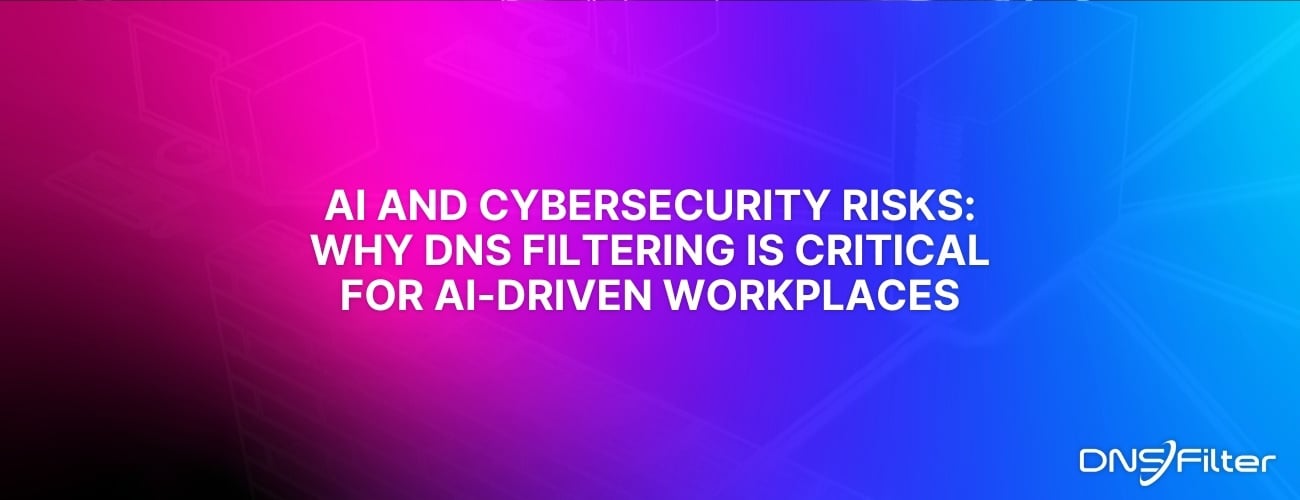Share this
Your Security Stack & Fantasy Football Team Have More in Common Than You'd Think
by Richie Wade on Sep 18, 2023 10:45:37 AM
If you’re a football fan like many of us at DNSFilter, it’s possible you have a fantasy league in the office or with your friends. Our #sportsball slack channel is keeping many of us going as the weather cools down and the days get shorter. It’s a fun way to discuss and track the football season (and potentially win bragging rights and the respect of your fantasy prowess).
Now you might be thinking, “How on Earth could fantasy football possibly relate to my cybersecurity stack?”
In the fast-paced world of cybersecurity, assembling the right combination of tools and strategies is akin to building a championship fantasy football team. Both endeavors require a thoughtful selection process, a balance of strengths and specialties, and an agile response to emerging threats or opportunities.
Take a seat on the bench as we explore the parallels between your security stack and your fantasy football team, highlighting the key elements that lead to victory in both arenas.
Fantasy Football & Your Security Stack
At its core, fantasy football gives you the opportunity to act as the GM, Coach, and Team Owner. As such, it’s your job to create a roster of players based on the data points that you as a “Team Owner” deem most important, similar to a CISO or IT director that is revamping their security stack. Are you picking up what I’m putting down here?
You as the Team Owner will draft players who are actively playing for one of the 32 NFL teams in order to create your own team. As an example, you need two running backs, so you draft your favorites: One might be from the Packers and the other the 49ers.
The Draft: Choosing Your Defensive Lineup
In fantasy football, you carefully select players to fill various positions on your team. Similarly, in cybersecurity, the selection of tools and solutions for your security stack is crucial. Consider these key "players" for your security defense lineup:
Firewall: Like a solid defensive line, a firewall acts as the first line of defense against incoming threats, regulating traffic to ensure only authorized connections are allowed.
Intrusion Detection System (IDS) and Intrusion Prevention System (IPS): These technologies act as your linebackers, identifying suspicious activity and taking action to prevent potential breaches.
Endpoint Protection: Think of this as your safety, protecting individual devices from malware and other threats.
Security Information and Event Management (SIEM): This is your quarterback of operations. Just as a quarterback orchestrates plays on the field, a SIEM system orchestrates and analyzes security events. It provides a centralized platform for monitoring, detecting, and responding to security incidents across your network.
Antivirus and Anti-malware: These are your running backs. In fantasy football, running backs are versatile players who can both run the ball and catch passes. Similarly, antivirus and anti-malware software are versatile tools that defend against a wide range of threats, from viruses to spyware.
Email Security and Protective DNS: Wide receivers are known for their agility and ability to catch passes. Email security tools and protective DNS (ahem… DNSFilter) similarly need to be agile, detecting and intercepting phishing attempts and malicious attachments or web pages before they reach the user.
Identity and Access Management (IAM): Tight ends play a dual role in both blocking and receiving. IAM solutions also serve a dual purpose, managing user identities while ensuring secure access to systems and resources.
Secure Web Gateway: Much like the flex position in fantasy football allows you to choose a player from multiple positions, a Secure Web Gateway provides a flexible layer of security that can protect against a wide array of threats, from malware to phishing.
Patch Management: Patch management is the reliable kicker that is essential for scoring points. Keeping your systems up-to-date with the latest patches is crucial for preventing vulnerabilities that could be exploited by cyber attackers.
Security Operations Center (SOC): Just as a strong defense and special teams unit can be a game-changer in football, a well-structured SOC can be a game-changer in cybersecurity. It acts as the central command for monitoring, detecting, and responding to security incidents.
Not Just a Fantasy: Your Dream Security Stack
Just as a well-rounded fantasy football team brings home championships, a robust security stack is crucial for safeguarding your organization against modern cyber threats. By carefully analyzing the data in front of you, selecting and integrating the right tools, and adapting to the evolving threat landscape, you can build a winning strategy that defends your organization with strength and agility. Remember, in both fantasy football and cybersecurity, victory comes to those who plan, analyze, adapt, and work together as a team.
At the end of the day, you want to make the best team out of your security solutions, and you need the data to back up your picks. Security frameworks, like NIST, SOC, CMMC, and CIS controls, provide you with that navigation to ensure you have a well-postured security solution for your environment.
With more than 27 million monthly users worldwide, record-breaking threat detection speeds (7 days faster than other threat feeds!), and more than 24 billion threats blocked so far this year, DNSFilter is clearly a first round pick.
Ready to add DNSFilter to your roster? Try us out for 14 days free here.
Share this
 Artificial Intelligence in Cybersecurity
Artificial Intelligence in Cybersecurity
The term “artificial intelligence (AI)” was first coined in 1956. While progress stalled for many years, we can thank IBM for sparking real interest in AI as viable technology: First in 1997 when the computer Deep Blue defeated a chess champion and again in 2011 when Watson won Jeopardy!
 The Mind Games Behind Cyber Attacks
The Mind Games Behind Cyber Attacks
Hackers have long understood that the most sophisticated firewall is no match for a well-placed psychological trick. While many focus on the technical prowess of cybercriminals, the real magic often lies in their ability to manipulate human behavior. By exploiting our natural tendencies and cognitive biases, hackers can slip past even the most robust security systems. It's not just about cracking codes; it's about cracking the human psyche.
 AI and Cybersecurity Risks: Why DNS Filtering is Critical for AI-Driven Workplaces
AI and Cybersecurity Risks: Why DNS Filtering is Critical for AI-Driven Workplaces
Artificial intelligence is transforming business operations, automating everything from customer service to data analysis. But with these advancements come new security challenges. AI-driven cyber threats are becoming more sophisticated, enabling attackers to automate phishing campaigns, generate malware, and exfiltrate sensitive data at scale. Without proper safeguards, AI tools can unintentionally leak corporate secrets or connect to malicious ...


